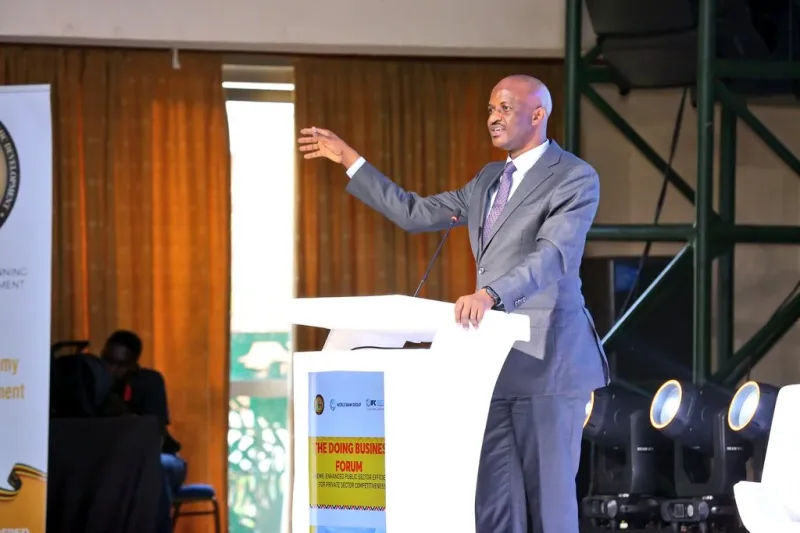
The Ministry of Finance, Planning and Economic Development (MoFPED) has called on financial institutions to develop products that genuinely promote economic growth instead of focusing narrowly on lending.
Permanent Secretary and Secretary to the Treasury (PSST), Ramathan Ggoobi, said the financial sector’s current approach has left gaps in promoting financial inclusion, an essential driver of Uganda’s economic transformation. He warned that many Ugandans remain excluded from the money economy despite increasing access to credit.
Ggoobi pointed out that while microfinance products now make up a growing share of the country’s loan portfolio, many of them have limited impact on enterprise expansion or poverty reduction. He argued that successful financial inclusion requires strengthening existing small businesses rather than merely extending credit in hopes of creating wealth. “Effective microfinance interventions should target existing enterprises to help them grow and strengthen, rather than simply offering credit to create wealth,” he said.
The Permanent Secretary made these remarks during the Annual Financial Inclusion Forum 2025, organised by financial sector stakeholders in partnership with the Bank of Uganda (BoU).
Ggoobi commended the Central Bank’s efforts to enhance public financial literacy and ensure market stability, noting that BoU continues to improve its consumer engagement mechanisms, including the establishment of a public complaints desk. He added that the Ministry, BoU, and other partners such as Financial Sector Deepening Uganda (FSDU) are collaborating to promote fair lending practices and strengthen consumer protection frameworks.
The PSST also highlighted the persistent gender gap in access to finance. Citing findings from the FinScope 2023 Report, he noted that women still lag behind men in formal financial participation, only 62 per cent of women hold accounts with regulated institutions, compared to 82 per cent of men.
He urged the financial industry to design pro-women financial products and digital tools that respect privacy and confidentiality, enabling women to manage their finances independently, especially in contexts where male control over household finances may be restrictive.
Finance Minister Matia Kasaija expressed optimism that ongoing reforms, such as the digitalisation of government systems and wealth-creation initiatives, would reinforce inclusive growth. However, he urged BoU to strengthen oversight of Savings and Credit Cooperative Organisations (SACCOs) and to work toward lowering lending rates.
Meanwhile, Deputy Governor of the Bank of Uganda, Augustus Nuwagaba, underscored the importance of mobilising domestic savings to provide affordable capital for entrepreneurs.
He said that Uganda’s financial sector reforms aim to foster fairness, transparency, and accountability across the sector.
Nuwagaba concluded by calling for greater collaboration among financial institutions, FinTechs, civil society, and consumer associations to promote financial empowerment and safeguard Ugandan consumers.













Marlene Luwedde
Leave a Comment
Your email address will not be published.